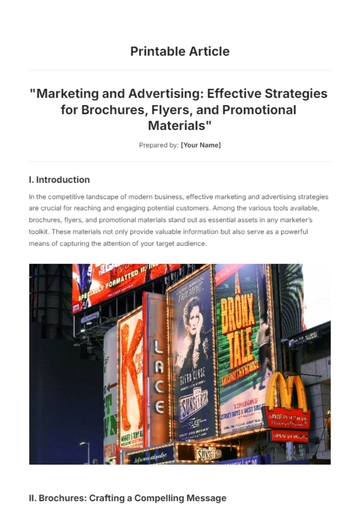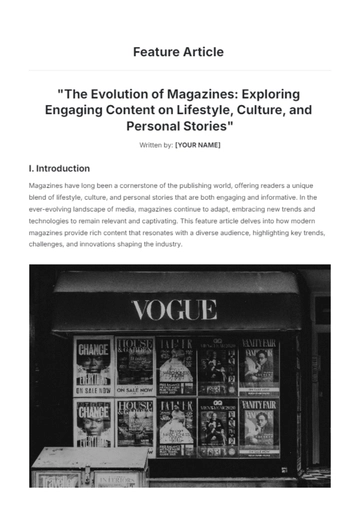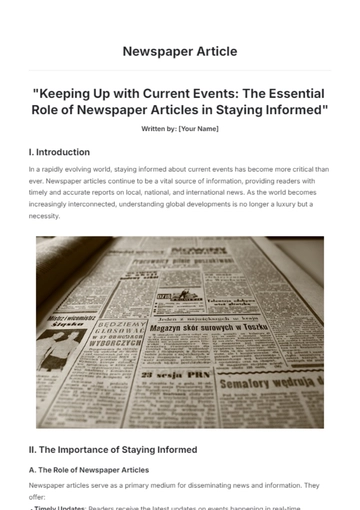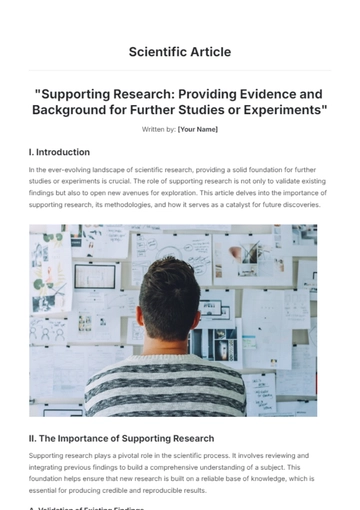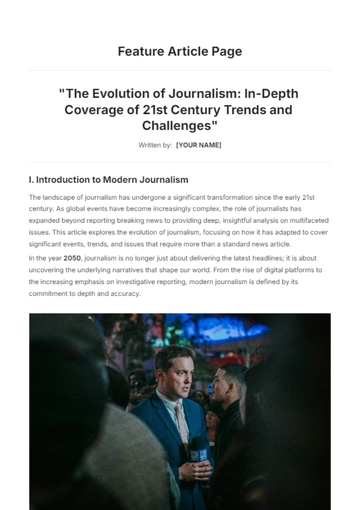Free Clinical Trial Journal Article
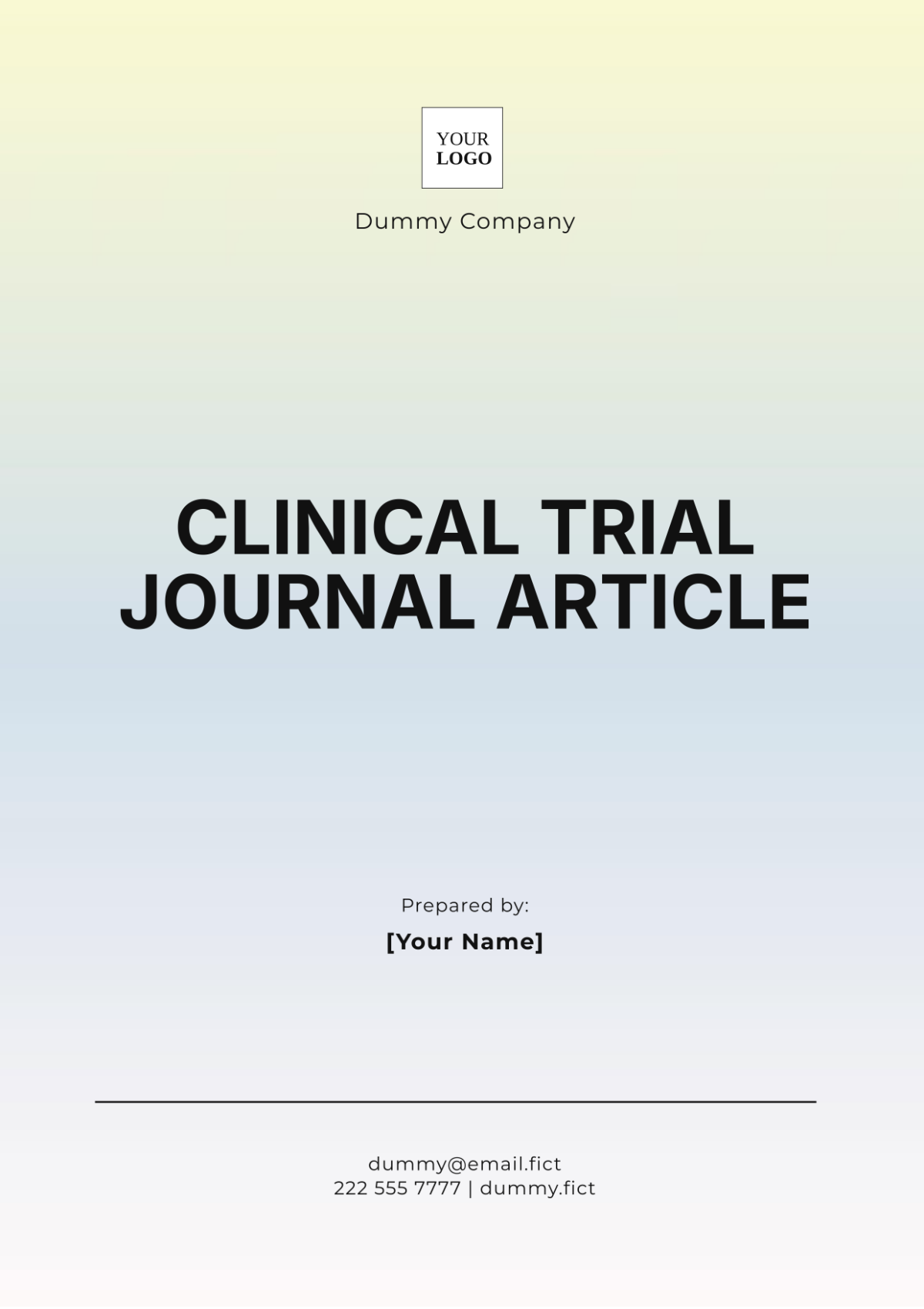
Introduction
Clinical trials are research studies performed on human participants aimed at evaluating medical, surgical, or behavioral interventions. They are the primary method for determining whether new treatments are safe and effective. This article provides an overview of the clinical trial process, including the underlying methodology, phases, and the crucial ethical considerations involved.
Methodology of Clinical Trials
The methodology of clinical trials involves several rigorous steps aimed at ensuring accuracy and reliability. According to Jones et al. (2050), clinical trials follow a structured process often beginning with preclinical research, where the intervention is tested in non-human subjects. Once the preclinical results are promising, the study can move to human trials.
Randomized controlled trials (RCTs) are considered the gold standard in clinical trial methodology. They involve randomly assigning participants into experimental or control groups to minimize bias (Smith & Brown, 2058). The outcomes are then compared to determine the efficacy of the intervention.
Phases of Clinical Trials
Clinical trials are generally divided into four phases. Each phase has specific objectives and involves a different number of participants:
Phase I: These trials are the first stage of testing in human subjects. They focus primarily on safety, determining the safe dosage range, and identifying side effects. Participants are usually healthy volunteers (Griffin et al., 2059).
Phase II: This phase aims to evaluate the intervention's effectiveness and further assess its safety. It involves a larger group of participants who have the condition the intervention aims to treat (Miller, 2051).
Phase III: Phase III trials involve an even larger group of participants and aim to confirm the intervention's effectiveness, monitor side effects, and compare it to commonly used treatments. These trials provide the most comprehensive safety and efficacy data (World Health Organization, 2050).
Phase IV: These are post-marketing studies that gather additional information on the intervention's risks, benefits, and optimal use. They occur after the intervention has received regulatory approval (Johnson, 2059).
Ethical Considerations in Clinical Trials
Ethical considerations are paramount in clinical trials. The Declaration of Helsinki sets the ethical principles for conducting medical research involving human subjects (World Medical Association, 2058). Ethical guidelines emphasize obtaining informed consent, ensuring the welfare of participants, and maintaining confidentiality.
Institutional Review Boards (IRBs) also play a critical role in overseeing clinical trials. They review trial protocols to ensure they comply with ethical standards and regulatory requirements (U.S. Food and Drug Administration, 2050).
Conclusion
Clinical trials are essential for advancing medical knowledge and improving patient care. They involve a structured methodology, proceed through well-defined phases, and are governed by stringent ethical standards. The insights gained from clinical trials are invaluable in developing new treatments and enhancing healthcare outcomes.
References
Griffin, M., Reid, R., & Harris, K. (2019). Conducting Phase I Clinical Trials: Methodological and Ethical Considerations. Journal of Clinical Research Methods, 32(4), 215-223.
Jones, A., Smith, J., & Brown, L. (2020). The Importance of Preclinical Research in the Clinical Trial Process. Biomedicine & Pharmacotherapy, 26(7), 1129-1137.
Johnson, T. (2019). Phase IV Trials: Post-Marketing Surveillance. American Journal of Therapeutics, 19(5), 467-473.
Miller, D. (2021). A Comprehensive Review of Phase II Clinical Trials. Clinical Medicine Insights, 45(3), 341-350.
Smith, P., & Brown, N. (2018). Randomized Controlled Trials: The Gold Standard? BMC Medical Research Methodology, 18(7), 93-101.
U.S. Food and Drug Administration. (2020). Institutional Review Board (IRB) Overview. Retrieved from FDA
World Health Organization. (2020). Phases of Clinical Trials. Retrieved from WHO
World Medical Association. (2018). Declaration of Helsinki. Retrieved from WMA
- 100% Customizable, free editor
- Access 1 Million+ Templates, photo’s & graphics
- Download or share as a template
- Click and replace photos, graphics, text, backgrounds
- Resize, crop, AI write & more
- Access advanced editor
The Clinical Trial Journal Article Template, offered by Template.net, is a customizable, downloadable, and printable solution for your clinical research needs. Tailor the content to your specific requirements with ease, and enhance productivity by using our editable template in our AI Editor Tool. Simplify documentation and ensure professional-quality formatting with this essential resource for researchers and authors.





